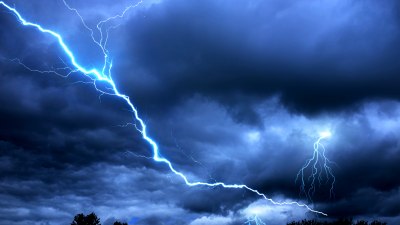The Science of Why You Feel the Urge to Clean When It’s Windy
Explore the scientific reasons behind the urge to clean when it's windy, including psychological and environmental factors.

This image was created with the assistance of Freepik
Many people have experienced an odd sensation of wanting to clean their spaces when the wind picks up outside. This phenomenon isn’t just a quirky aspect of human behavior; it can actually be explained through various scientific lenses. Understanding why we feel the need to tidy up during windy conditions involves an exploration of psychology, environmental influences, and evolutionary biology.
The Psychological Connection
Wind can have a profound psychological effect on our mood and behavior. According to numerous studies, natural elements in our environment have the potential to influence our emotions significantly. Wind is often associated with change and can invoke feelings of unease or restlessness in many individuals. This discomfort may drive a desire to establish order in our immediate surroundings. When circumstances appear chaotic outside, people might feel compelled to take control of their environments by organizing and decluttering their living spaces.
Environmental Triggers
The wind has physical effects that may contribute to the urge to clean. Increased airflow can stir up dust, debris, and allergens, prompting individuals to notice the cleanliness of their homes more acutely. When the air outside is restless, it can lead to an internal feeling of restlessness. This sensitivity to a less-than-ideal environment can push us to act in ways that restore balance in our personal spaces. The desire to create a clean, soothing refuge contrasts the chaotic forces at play outside.
The Role of Seasonal Changes
Different seasons bring various wind patterns. For example, spring winds can signal a time to refresh our living spaces after the stagnancy of winter. The concept of “spring cleaning” is deeply embedded in various cultures—alluding to the desire to refresh and rejuvenate one’s life in alignment with nature's cycles. Wind during spring often carries the scent of new growth, fresh blooms, and the gentle awakening of nature, further influencing our subconscious need to clean and let go of the old while welcoming the new.
Evolutionary Biology Perspective
From an evolutionary standpoint, the desire to maintain a clean and organized living space has roots deeply intertwined with survival. Our ancestors depended on their surroundings for safety from elements, predators, and disease. A clean environment was essential to avoid attracting unwanted pests and ensure a safe haven for family and tribe. The innate response to clean might stem from this evolutionary need to create a safe, healthy space that fosters well-being.
Cultural Insights
Cultural norms also play a significant role in how we respond to environmental stimuli. In many societies, cleanliness is associated with health, success, and social status. When the wind blows, stirring the air and disrupting our sense of calm, the urge to clean may arise as a symptom of cultural conditioning. People often equate cleanliness with control over one's life; therefore, acting on this urge might stem from deeper social pressures and norms.
Wind as a Stimulus for Physical Activity
Wind can also indirectly promote physical activity, including cleaning. The sheer act of overcoming obstacles presented by windy conditions outside can stimulate the desire to engage in tasks that require physical effort indoors. With winds howling outside, individuals may feel more inclined to channel their energy into cleaning projects, utilizing the invigorating force of the wind as motivation to generate productivity within their homes.
The Impact on Mental Health
Cleansing rituals are often therapeutic and beneficial for mental health. The act of cleaning can be akin to meditation, offering a focused activity that allows the mind to rest. Windy weather can create an atmosphere of uncertainty and unpredictability. As a form of grounding, cleaning can provide individuals with a sense of stability and control. Psychologically, cleaning serves as a distraction from external stressors, allowing for improved mood and mental clarity.
Mindfulness and Presence
Cleaning in windy weather can also foster a sense of mindfulness. The act of decluttering and organizing encourages presence, guiding individuals to focus on tangible tasks rather than the swirling chaos outside. Engaging in mindful cleaning can create a restorative atmosphere, where the individual pays attention to the sights, sounds, and sensations involved in the act. This heightened awareness can promote relaxation and calmness, helping to combat wind-induced anxiety.
Home as Sanctuary
In times of natural disturbance, our homes can feel like sanctuaries. When faced with windy conditions that disrupt our day-to-day lives, the fortress-like aspect of our homes offers solace. The urge to clean becomes intertwined with the psychological need to create a safe, comfortable haven that can shield against the disorder outside. This might explain why people often prioritize organizing their living spaces during such conditions, viewing cleaning as nurturing their domain.
The urge to clean when it's windy transcends mere coincidence; it's a rich interplay of psychological, environmental, and cultural factors that activate our desire for tidiness and order. We are conditioned to create a sanctuary that counteracts the chaos of the outside world. Next time the winds start to howl, consider harnessing that energy to freshen up your space and restore a sense of calm. Understanding these underlying triggers can empower individuals to be more in tune with their instincts, resulting in a more intentional approach to cleaning and organization.











